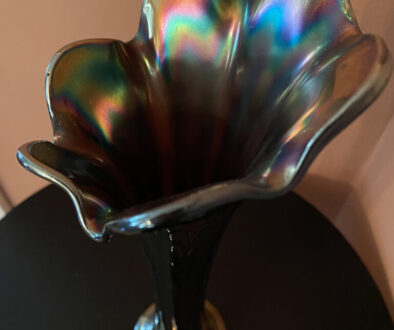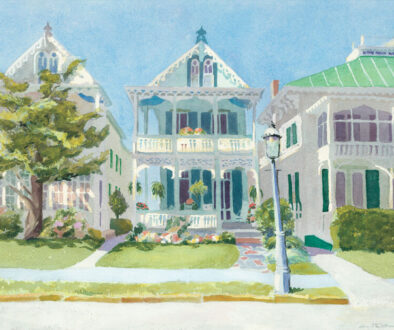Historic Smithville

Historic Smithville, in this case, refers not to the quaint shopping village in Atlantic County, but a bygone industrial town in Burlington County, named for New England business magnate and inventor Hezekiah Bradley “H.B.” Smith.
In the post-Civil War era, Hezekiah bought the former textile town of Shreveville, New Jersey, and established the H. B. Smith Machine Company, which flourished until the Great Depression. At its peak, it produced a quarter of the nation’s woodworking machinery, and novelties like the steam tricycle and the high-wheeler American Star Bicycle. Smithville today is a 300-acre park and hamlet with many intact structures, including Hezekiah’s mansion home, as well as the picturesque ruins of 19th century factories.
As an employer, Hezekiah was forward-thinking for his time. He paid well, provided housing and education for workers and their families, and even offered night school to adults who wanted to better their stations in life. The community on the Rancocas River had its own post office and opera house, and even a marching band, made up of Smithville mechanics.
While the community’s social and industrial history are fascinating, the real drama was the romance between Hezekiah and a young mill worker named Agnes Gilkerson. Their saga could have been torn from the pages of a Jackie Collins novel.


When they met, Agnes was a rare beauty, more than 20 years his junior. Hezekiah was already married with four children, all living hundreds of miles away, in Vermont. He asked his wife Eveline for a divorce, but she refused. So, Hezekiah destroyed any paperwork that proved their union, removed the names of his children from the family bible, and remarried.
His new bride was as bright and ambitious as he was. She became a medical doctor, horticulturist, and entrepreneur who pitched her own line of beauty products in Smithville’s working-class journal, the New Jersey Mechanic (which she also edited). On a 60-minute tour of the Smiths’ mansion, Ali, our knowledgeable guide, called Agnes “one of the freest women of her time”—by all accounts a caring woman who tended to the sick of the community and worked alongside James Still, known as “the Black Pine Barrens doctor,” who also practiced herbal medicine and natural cures.
But over time, word of Hezekiah’s apparent bigamy got out. By then a Democratic congressman, he insisted that he and Eveline had never wed, and her children were not his issue. In so doing, he earned the lasting enmity of his oldest son, Elton.
Agnes died at 43, and a bereft Smith commissioned a life-sized statue in her likeness, made of Italian marble, for his formal gardens. He spent many a mournful hour gazing on the effigy as violins played.



In his dotage, Hezekiah was undoubtedly eccentric. He owned a moose calf named February and trained it to pull his carriage around the grounds. By one account, he also engaged a half dozen young women to live with him at the big house and keep him company. He died in 1887, at the age of 71.
That’s when Elton Smith re-emerged to challenge the will, which excluded him and his siblings. He won, then tried to exhume his father’s body, planning to bury it next to Eveline in Vermont. But the wily Hezekiah foiled the grave-robbing. He had arranged to be buried in an iron coffin, sunk in an iron and concrete cage, so he could rest in eternity near his beloved Agnes. Elton was livid. He ordered mill workers to destroy Agnes’ statue and toss the rubble in the river.
It’s hard to imagine such commotion in this serene setting. In 1975, Burlington County acquired the property, which is listed on the National and New Jersey Registers of Historic Places. The grounds include miles of meandering trails that lead through forests, meadows, and wetlands to beautiful Smithville Lake, a great place for hiking, biking, fishing, and canoeing. The Smith’s Woods area also includes picnic pavilions with grills, a playground, and butterfly gardens.
In addition to natural wonders, visitors can tour the Smiths’ 1840 Greek Revival Mansion, filled with ornate Victoriana. It’s open through October, closes in November, and reopens in December, decorated to the rafters for the holidays. The mansion also hosts special events, such as themed tea times with guest speakers.
For a trip back to America’s industrial past, an example of a self-sustaining, worker-centric community, and a rip-snorting tale of scandal and revenge, there’s no place like “the other Smithville,” in Burlington County.



